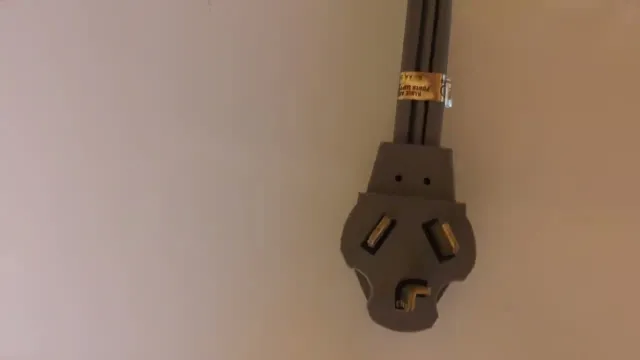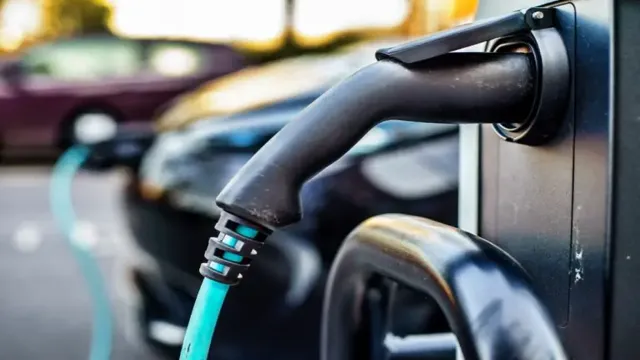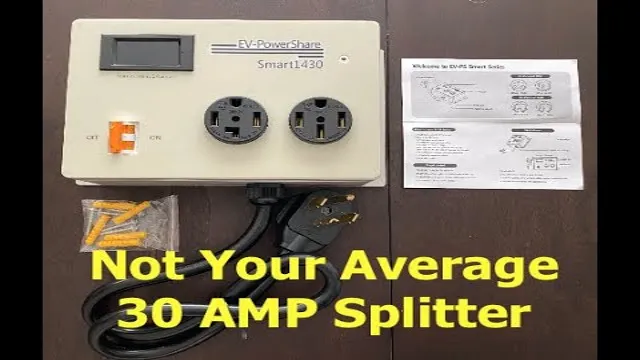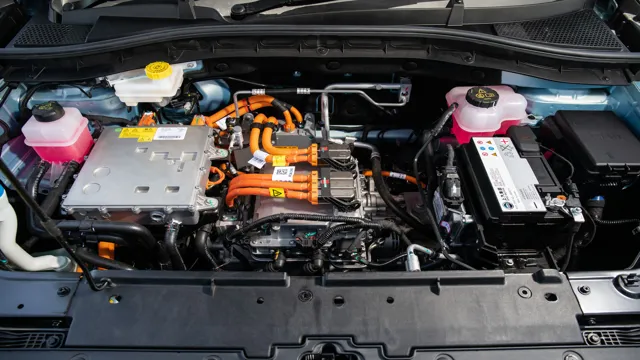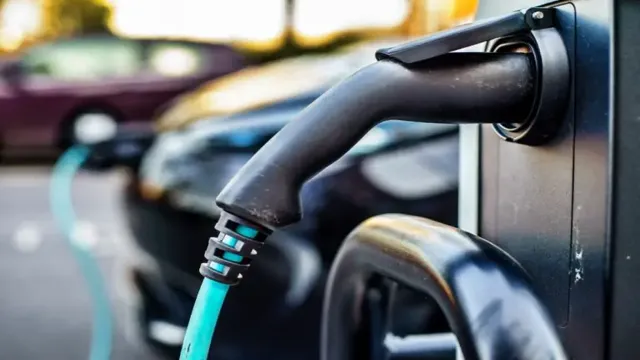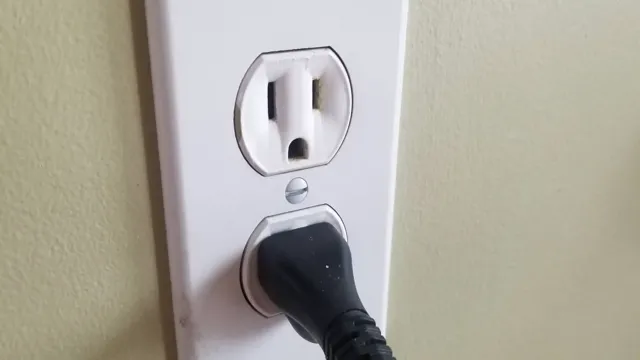Revving Up Your EV: Can You Safely Charge it with Your Dryer Outlet?
As more and more people opt for electric vehicles (EVs) in an effort to reduce their carbon footprint, the issue of charging these vehicles becomes critically important. While you can charge an EV at home using a standard wall outlet, it can take hours for the battery to fully charge. That’s where a dryer outlet comes in handy.
For those of us who don’t have access to an EV charging station or want a faster charging option, a dryer outlet can be a great solution. But before you start plugging in your car, it’s important to understand how to use the dryer outlet safely and correctly. In this blog post, we’ll discuss the basics of using a dryer outlet to charge your EV and offer tips to help you get the most out of this charging option.
Safety Concerns
Many people have wondered if they can use their dryer outlet to charge their electric vehicle (EV), but there are some important safety concerns to consider first. While it may be tempting to use an existing outlet for convenience, it is important to remember that EV charging requires a lot of power and can cause an overload if your electrical system is not properly equipped. Most dryer outlets are designed for a maximum of 30 amps, which may not be enough to handle the demands of an EV charger.
Additionally, using an outlet that is not specifically designed for EV charging could potentially cause damage to both your vehicle and your home’s electrical system. To ensure optimal safety and efficiency, it is recommended to have a licensed electrician install a dedicated EV charging station with the appropriate power supply and safety features. Although it may require an initial investment, the peace of mind and long-term cost savings are well worth it.
Electricity Requirements for EVs
When it comes to electric vehicles (EVs), safety concerns are always at the forefront of the discussion. One of the biggest areas of concern is the electricity requirements of these vehicles. While some worry about the risk of electrocution when charging an EV, the reality is that these vehicles are designed with safety in mind.
Manufacturers implement safeguards such as circuit breakers and ground fault detectors to prevent any accidents. Additionally, EV drivers should always follow safe charging procedures, including avoiding the use of damaged cords and plugging their vehicle into a designated EV charging station rather than a standard outlet. With proper care, electric vehicles offer a safe and reliable form of transportation that can greatly reduce our dependence on fossil fuels.
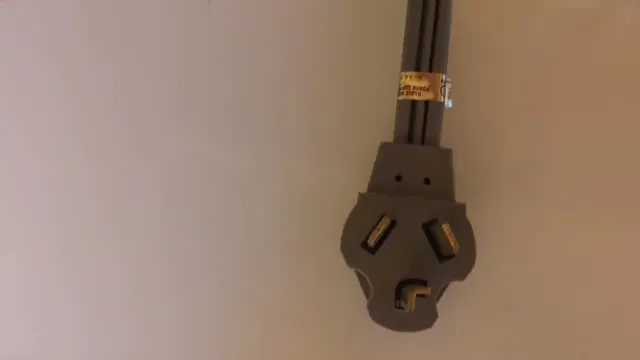
Amperage and Voltage Ratings for Dryer Outlets
When it comes to dryer outlets, safety should always be a top priority. The amperage and voltage ratings of these outlets are crucial to ensuring safe operation of your dryer. In general, dryer outlets have a voltage rating of 240V and an amperage rating of 30A or more.
Using an outlet with a lower rating than what is required can result in overheating and potential fire hazards. It’s also important to ensure that the outlet is installed by a licensed professional, who can ensure that it’s properly grounded and connected to the correct circuit breaker. Don’t take chances with the safety of your home and family – always use the appropriate amperage and voltage ratings for your dryer outlet.
Adapters and Converters
If you’re wondering whether you can use your dryer outlet to charge your electric vehicle, the answer is not a straightforward yes or no. While both the dryer outlet and EV chargers deliver electricity, their voltages and amperages differ. A typical dryer outlet supplies 240 volts at 30 amps, while most EV chargers require 240 volts at 40 amps or above.
Using a simple adapter or converter may not work and could even be dangerous. The best solution is to install a dedicated EV charger that is compatible with your vehicle’s battery capacity. A level 2 EV charger will offer faster charging times and be less prone to safety hazards than using other options.
It’s essential to ensure that you have a qualified electrician install and check your charger to guarantee safety and optimize efficiency. By doing so, you’ll be able to recharge your car safely and efficiently at home, without needing to rely on public charging stations.
Using a NEMA 14-50 adapter
If you own an electric vehicle (EV), you might be wondering about the different adapters and converters available to you, particularly the NEMA 14-50 adapter. This particular adapter is designed for Level 2 charging for EVs, making it one of the most popular choices on the market. The NEMA 14-50 is a standard 240-volt outlet that’s commonly used for RV parks, welding shops, and other job sites.
With this adapter, you can charge your EV faster than a Level 1 charging station – typically giving you 25 miles of range per hour of charging. The adapter is also relatively easy to use – simply plug it into your NEMA outlet and then connect it to your EV charger. While there are other adapters and converters available, the NEMA 14-50 is a solid option that offers fast charging speeds and broad compatibility with many EV models.
So if you’re looking for a way to charge your EV at home, the NEMA 14-50 adapter is definitely worth considering.
Installing a dedicated EV charging station
Adapters and converters are essential components when installing a dedicated EV charging station. They allow you to connect your electric vehicle to the charging station, regardless of the type of plug-in your car has. Adapters come in different sizes, depending on the size of the plug-in required by your vehicle.
Converters are typically used when your car’s charging system is not compatible with the charging station. They are the bridge between the two different systems, converting the electricity from the charging station into a form that is usable by your vehicle. It is essential to choose the right adapter or converter to ensure efficient charging and protect your car’s battery.
Always consult a professional when installing a charging station and selecting the appropriate adapter or converter for your vehicle. Purchasing the right adapter or converter can save you time and money in the long run and make the charging process seamless.
Professional installation is recommended
Adapters and converters are incredibly useful tools to have when it comes to setting up electronic devices that require different types of power or connections. However, it’s important to note that professional installation is recommended for these types of devices, especially if you’re not familiar with how to properly install them yourself. Adapters and converters can be complex and confusing, and if not installed correctly, can cause issues with your electronic devices.
It’s always best to leave it to the professionals to ensure that everything is installed correctly and safely. Additionally, using the right adapter or converter for your device is crucial to prevent damage and ensure that it operates efficiently. So, if you’re in need of an adapter or converter, be sure to seek out professional installation to ensure that everything works correctly and avoid any potential issues.
Conclusion
In short, using your dryer outlet to charge your EV may seem like a convenient and easy solution, but it is not the wisest choice. Not only can it be dangerous and potentially cause damage to both your car and your home’s electrical system, but it also violates codes and regulations. It’s best to invest in a proper EV charging station that is specifically designed to handle the unique needs of your EV.
Let’s be mindful of safety and efficiency, and leave the dryer outlets for our clothes, not our cars!”
Consult with a licensed electrician for guidance
If you’re traveling to a country with a different electrical system than your own, it’s important to understand the difference between adapters and converters. Adapters simply allow you to plug your device into a different type of outlet, while converters actually change the voltage of the electricity. It’s important to note that not all devices are compatible with converters, and using the wrong one can damage your electronics or even cause a fire.
That’s why it’s always best to consult with a licensed electrician before using a converter. They can help you determine the correct voltage for your device and ensure that the converter you use is safe and compatible. Don’t take any chances when it comes to electricity – always prioritize safety and consult with a professional.
Ensure safety measures are in place before charging
Adapters and converters are essential components when it comes to charging electronic devices. However, safety should always be a top priority when using these devices. Before you connect any device to an adapter or converter, make sure that it is rated for the voltage and wattage of the device you want to charge.
It’s also important to understand the differences between adapters and converters. Adapters simply change the shape of the plug to fit the outlet, while converters adjust the voltage to match that of the device being charged. Using the wrong type of adapter or converter can result in damage to your device, and even pose a fire risk.
Additionally, always make sure that your charging area is free from any obstructions that could cause overheating or a fire. Stay safe while charging your devices by ensuring that the right adapters and converters are being used, and that your charging area is free from potential hazards.
FAQs
Is it safe to use my dryer outlet to charge my EV?
It is not recommended to use your dryer outlet to charge your EV as it can lead to a fire hazard due to the high power requirements of EV charging. It is recommended to install a dedicated EV charging station.
How much does it cost to install a dedicated EV charging station?
The cost of installing a dedicated EV charging station can vary based on several factors such as the location, type of charger, and installation complexity. On average, it can cost anywhere between $500 to $2000.
Can I install a dedicated EV charging station at my home if I live in an apartment or a rented house?
Yes, it is possible to install a dedicated EV charging station in a rented apartment or a house. However, you need to get permission from your landlord or the property management company and also ensure that the installation complies with local regulations.
Can I charge my EV using a regular power outlet?
Yes, you can charge your EV using a regular power outlet, but the charging will be slower as most regular outlets have a lower power output. It is recommended to use a dedicated EV charging station for faster charging.

